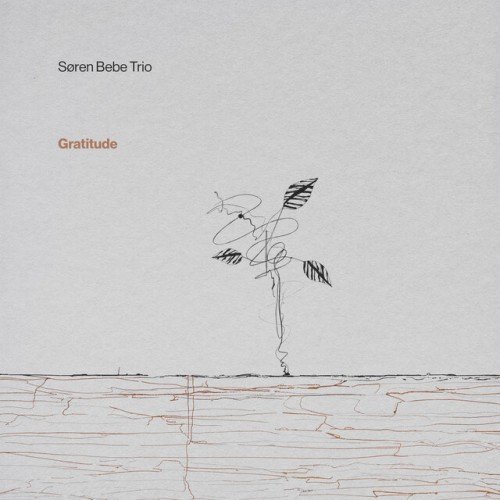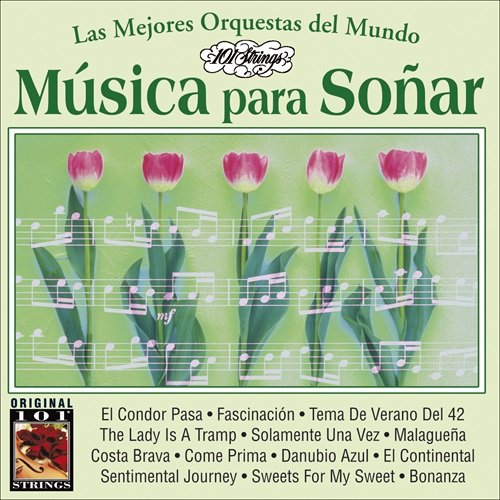Sylvie Courvoisier - Abaton (2003)
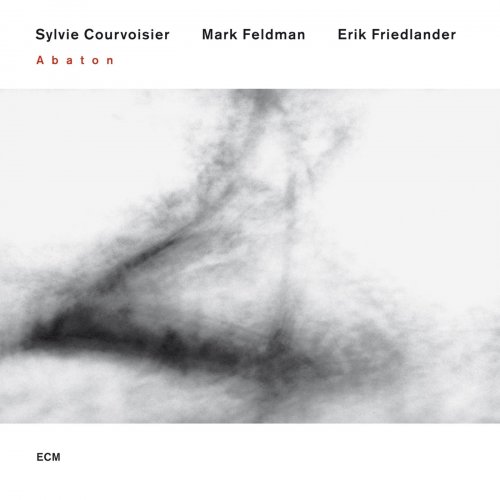
Artist: Sylvie Courvoisier
Title: Abaton
Year Of Release: 2003
Label: ECM
Genre: Free Improvisation, Avant-garde Jazz, Modern Classical
Quality: FLAC (tracks) / MP3 320 Kbps
Total Time: 01:45:20
Total Size: 454 Mb / 267 mb
WebSite: Album Preview
Tracklist: Title: Abaton
Year Of Release: 2003
Label: ECM
Genre: Free Improvisation, Avant-garde Jazz, Modern Classical
Quality: FLAC (tracks) / MP3 320 Kbps
Total Time: 01:45:20
Total Size: 454 Mb / 267 mb
WebSite: Album Preview
CD 1
1. Ianicum 19:55
2. Orodruin 12:33
3. Poco A Poco 9:24
4. Abaton 11:29
CD 2
1. Acaria 1 4:04
2. Imke's 2:08
3. Icaria 2 3:30
4. Clio 2:46
5. Nova Solyma 4:42
6. Spensonia 3:38
7. Octavia 3:34
8. Icaria 3 2:37
9. Sonnante 3:37
10. The Scar Of Lotte 1:35
11. Turoine 1:04
12. Archaos 3:37
13. Ava's 1:30
14. Brobdingnag 1:29
15. Calonack 2:55
16. Precioso 2:46
17. Sekel 1:26
18. Izaura 2:51
19. Narnia 1:50
Personnel:
Sylvie Courvoisier, piano
Mark Feldman, violin
Erik Friedlander, cello
The ancient Greek title of Abaton denotes, abstractly, an “inaccessible place” and, practically, a space believed to have curative properties when used for ritual sleep by those deemed worthy of its seclusion. It also names the trio performing here under its auspices. Born in Switzerland, pianist Courvoisier has lived and worked in New York City since 1998. This is her only ECM appearance thus far, but with it she makes a far-reaching splash. Violinist Mark Feldman, who after a string of successful releases with the John Abercrombie Quartet explores his classical foundations through the pianist’s evocative writing, and cellist Erik Friedlander, another New Yorker whose penchant for edges finds him in comfortably eclectic tenure, accompany her. Together they have forged something so realistic that it can only be enchanting. Indeed, what began as a recording exclusively of Courvoisier’s compositions, four of which comprise the first disc, turned into a double album at the behest of producer Manfred Eicher, who encouraged the musicians to improvise another disc’s worth of material once the initial recording was complete.
“Ianicum,” with which the album begins, is also its postmodern statement par excellence. Courvoisier daubs the canvas with barest ash, producing an audible equivalent of the album’s cover art, while Feldman and Friedlander draw a winter moon’s halo around her. From these introductions coalesces a mirror structure: strings on one side, keyboard on the other. Direct plucking of piano strings signals tectonic movements, a breaking of surface that flirts with indecipherability even as it speaks clear as day to our mental sanctums. Courvoisier’s internalism is echoed by pizzicati, prompting Friedlander to own the shadows of interpretive duty for a spell. Into this dynamic context wanders Feldman, who leaves a trail of breadcrumbs both familiar and newly inspired. The pianism of “Orodruin,” by contrast lights the cello’s fuses in an asymptotic dance between the macabre and material reality. Unisons somehow make it through, angelic and suspended in the glow of afterlife. The title composition is also for the trio. In it, linguistic affinities abound, dialecting over time as voices become protracted and distinct.
Courvoisier is absent for “Poco a poco,” making for a slicker, more chameleonic experience. The effect is celebratory at heart and delineates a realm where nostalgia for 20th-century chamber music blends motifs with assurance. Feldman and Friedlander are an intuitive pair in a tertiary drama.
Each of the 19 improvisations that follow is a vignette of eclectic power. Confronted with titles such as “Icaria” (of which there are three versions) and “Clio” (Greek muse of history), one can’t help but read mythological impulses behind these ad hoc constructions. Words and images fall short of their affective spectrum, dancing among the shadows across the wall of Plato’s allegorical cave. These figures haunt themselves, stepping into their own dreams as if through water.
As fascinating as the trio’s full-on interactivity can be (cf. “Archaos”), it is in the program’s solo portions where brilliance truly crystallizes. Feldman draws the most mournful bow through “Imke’s,” a candle flame in sound that holds on to wick like life itself and draws melody from oxygen. Friedlander is not far behind in “Turoine” and “Ava’s,” walking a tightrope between regret and resolve. Yet it is Courvoisier, tracing an arc from “The Scar of Lotte” through the organic preparations of “Brobdingnag” and lastly to “Narnia,” who houses the album’s spirit with most of its wing fibers intact. Her notes become indistinguishable from the snowflakes beyond the wardrobe, reminding us that quietude sits on the throne of this castle.
The relationship between these two halves—the predetermined and indeterminate—is hardly conversational. It instead forms a palindrome of intention, meeting in the silent middle between disc changes: the album’s very own abaton, waiting to make divided listeners whole again.
“Ianicum,” with which the album begins, is also its postmodern statement par excellence. Courvoisier daubs the canvas with barest ash, producing an audible equivalent of the album’s cover art, while Feldman and Friedlander draw a winter moon’s halo around her. From these introductions coalesces a mirror structure: strings on one side, keyboard on the other. Direct plucking of piano strings signals tectonic movements, a breaking of surface that flirts with indecipherability even as it speaks clear as day to our mental sanctums. Courvoisier’s internalism is echoed by pizzicati, prompting Friedlander to own the shadows of interpretive duty for a spell. Into this dynamic context wanders Feldman, who leaves a trail of breadcrumbs both familiar and newly inspired. The pianism of “Orodruin,” by contrast lights the cello’s fuses in an asymptotic dance between the macabre and material reality. Unisons somehow make it through, angelic and suspended in the glow of afterlife. The title composition is also for the trio. In it, linguistic affinities abound, dialecting over time as voices become protracted and distinct.
Courvoisier is absent for “Poco a poco,” making for a slicker, more chameleonic experience. The effect is celebratory at heart and delineates a realm where nostalgia for 20th-century chamber music blends motifs with assurance. Feldman and Friedlander are an intuitive pair in a tertiary drama.
Each of the 19 improvisations that follow is a vignette of eclectic power. Confronted with titles such as “Icaria” (of which there are three versions) and “Clio” (Greek muse of history), one can’t help but read mythological impulses behind these ad hoc constructions. Words and images fall short of their affective spectrum, dancing among the shadows across the wall of Plato’s allegorical cave. These figures haunt themselves, stepping into their own dreams as if through water.
As fascinating as the trio’s full-on interactivity can be (cf. “Archaos”), it is in the program’s solo portions where brilliance truly crystallizes. Feldman draws the most mournful bow through “Imke’s,” a candle flame in sound that holds on to wick like life itself and draws melody from oxygen. Friedlander is not far behind in “Turoine” and “Ava’s,” walking a tightrope between regret and resolve. Yet it is Courvoisier, tracing an arc from “The Scar of Lotte” through the organic preparations of “Brobdingnag” and lastly to “Narnia,” who houses the album’s spirit with most of its wing fibers intact. Her notes become indistinguishable from the snowflakes beyond the wardrobe, reminding us that quietude sits on the throne of this castle.
The relationship between these two halves—the predetermined and indeterminate—is hardly conversational. It instead forms a palindrome of intention, meeting in the silent middle between disc changes: the album’s very own abaton, waiting to make divided listeners whole again.
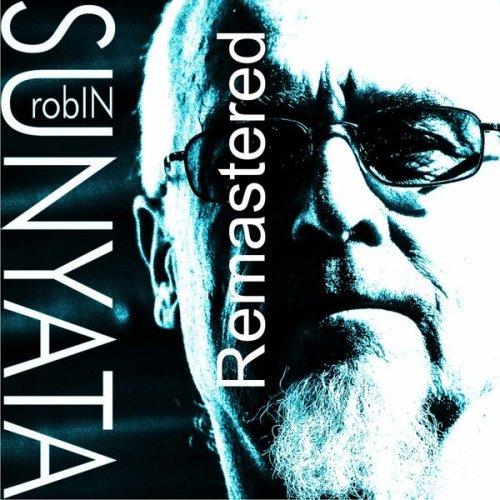
![Fabiano do Nascimento - Vila (2026) [Hi-Res] Fabiano do Nascimento - Vila (2026) [Hi-Res]](https://img.israbox.com/img/2026-02/26/o4t38f6qf24pvc3bqzanbhsz3.jpg)

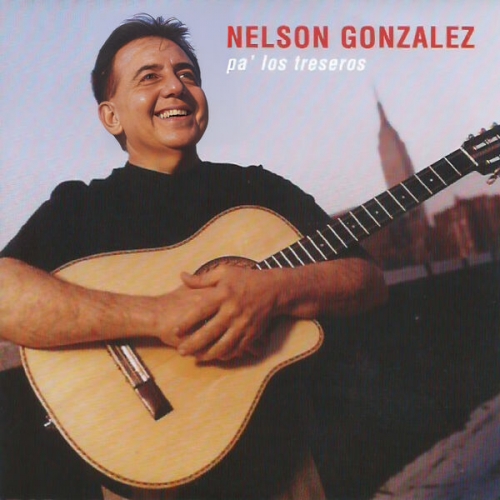
![Asher Gamedze - A Semblance: Of Return (2026) [Hi-Res] Asher Gamedze - A Semblance: Of Return (2026) [Hi-Res]](https://www.dibpic.com/uploads/posts/2026-02/1772032727_a2374104512_10.jpg)
